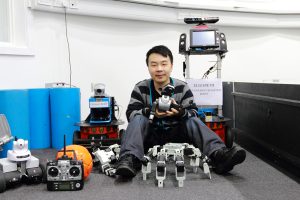06 Jul 2023
In collaboration with the Consulate General of Switzerland in Shanghai and the Suzhou Foreign Affairs Office, Xi’an Jiaotong-Liverpool University hosted “So Swiss! in Suzhou” last month. This offered a networking platform to exchange ideas and showcase Swiss sustainable practices in construction, healthcare and lifestyle, providing valuable insights into the industries’ latest developments.
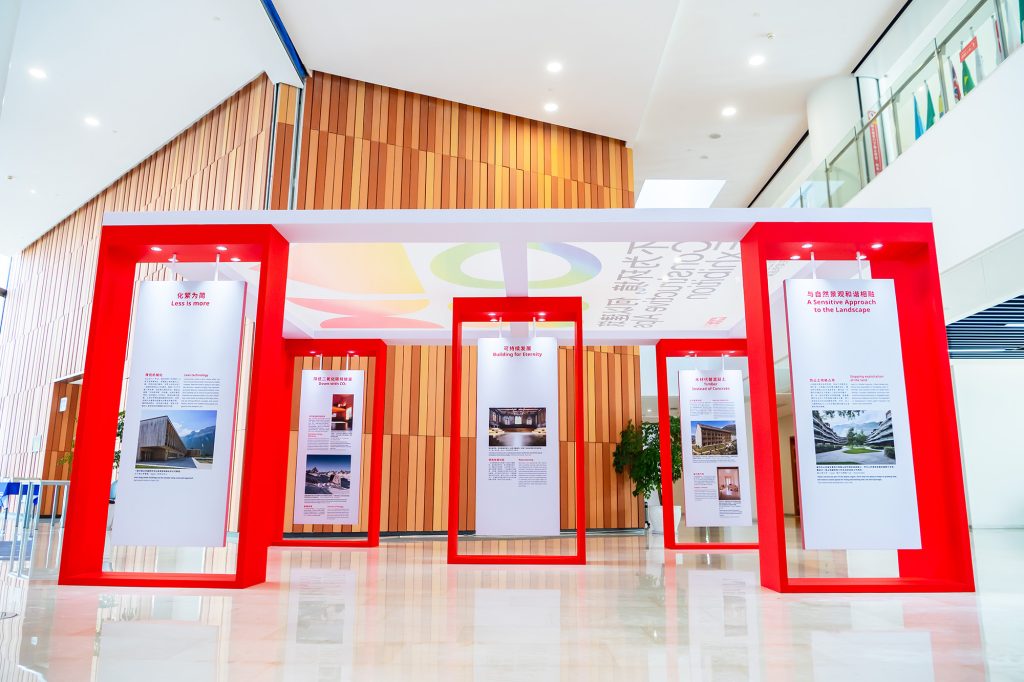
Jürg Burri, Ambassador of Switzerland to China; Sacha Bachmann, Consul General of Switzerland in Shanghai; Fei Xie, Deputy Secretary General of Suzhou Municipal People’s Government; and Professor Zhoulin Ruan, Vice President for Academic Affairs at XJTLU, attended the opening ceremony.
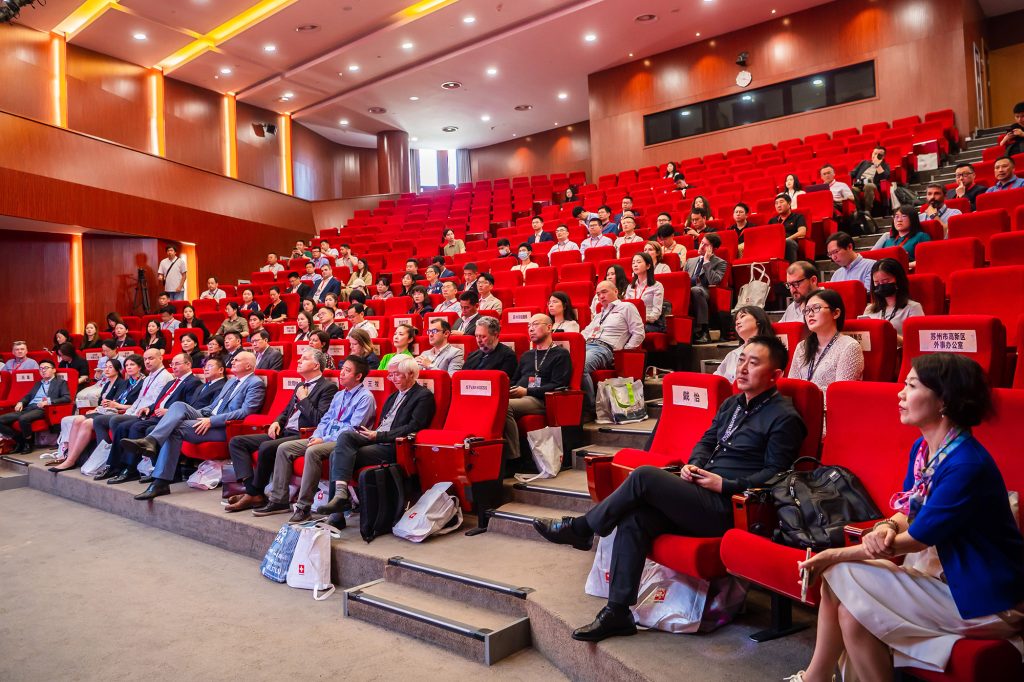
According to Jürg Burri, Switzerland and China have built strong relations over the past several years, and China is Switzerland’s third biggest trade partner today.
At the opening ceremony, he said: “Many Swiss companies have founded branches here in China, and Suzhou is among the top five locations for those companies. I think there’s a simple explanation – smart people go to beautiful places.
“The topics of today’s event demonstrate how smart people show responsibility towards the planet and future generations. It is a very good sign and occasion for us to work together, and to make something good out of it for the whole world.”
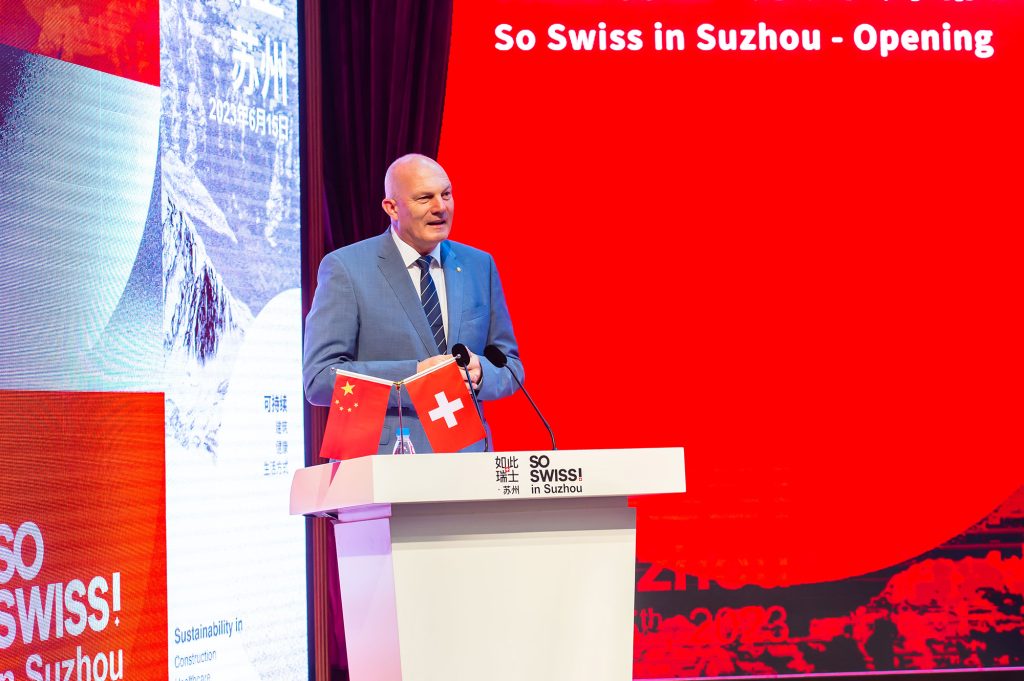
Jürg Burri
Professor Zhoulin Ruan, in his speech, said that XJTLU is proactively engaged in sustainable education and projects through academic events and collaboration with key stakeholders.
“Switzerland is a global leader in sustainable development, and the event can be a good platform for us to learn from their experience in construction, architecture, healthcare, travel and lifestyle.
“Through this event, we hope to develop cooperation networks with Swiss companies in Suzhou to exchange knowledge, expertise, and resources and bridge the gap between academy and industry,” he said.
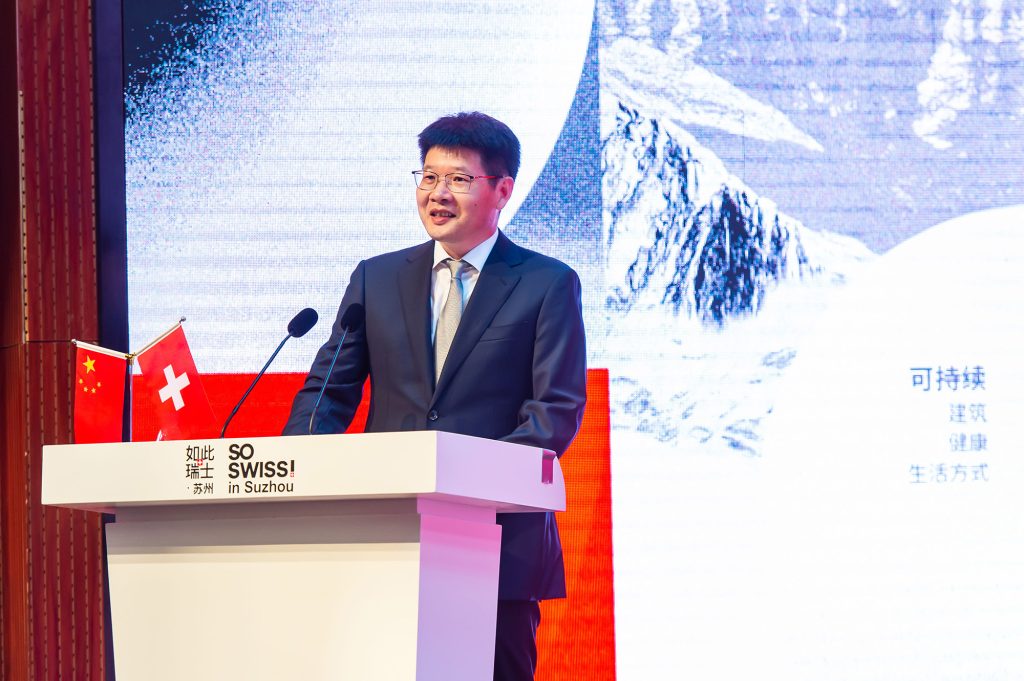
Professor Zhoulin Ruan
Sustainable urban renewal
Professor Chen Zhao from the School of Architecture and Urban Planning, Nanjing University, moderated the sustainable urban renewal panel discussion.
The panellists were Nadia Benani, Counsellor and Head of International Cooperation, Embassy of Switzerland, Beijing; Vincent Zhang, Chief Architect and CEO at architecture firm Lemanarc; Daniel Heusser, Chief Architect and President of VIRTUARCH; and Dr Davide Lombardi, Senior Associate Professor and Head of Department of Architecture at XJTLU.
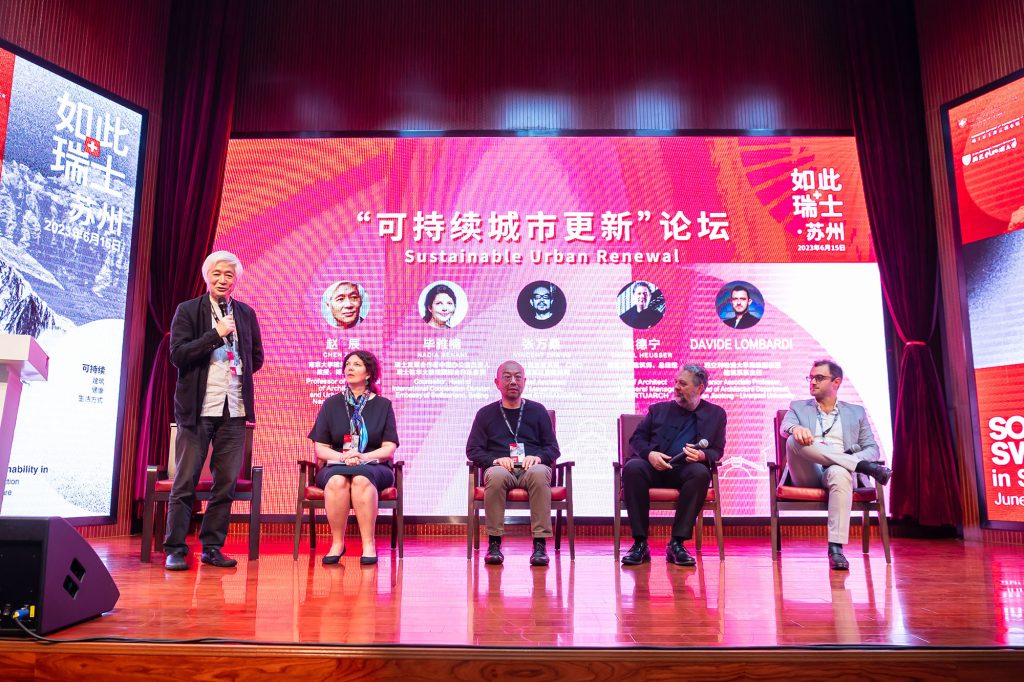
From left to right: Professor Chen Zhao, Nadia Benani, Vincent Zhang, Daniel Heusser and Davide Lombardi
During the discussion, the panellists shared their views on applying innovative technology in architecture, adapting the design to particular regional environmental conditions, and preserving buildings and the urban landscape over time. Drawing from practices in Switzerland and China, they highlighted the positive role architecture could play in environmental protection and sustainable development.
Dr Lombardi gave an overview of XJTLU’s Department of Architecture and how they integrate sustainability into education.
“We teach the students to design for the future and think 20 or 50 years ahead. We tackle the most important topics nowadays regarding architecture, construction, sustainability, and environmental sciences,” he said.
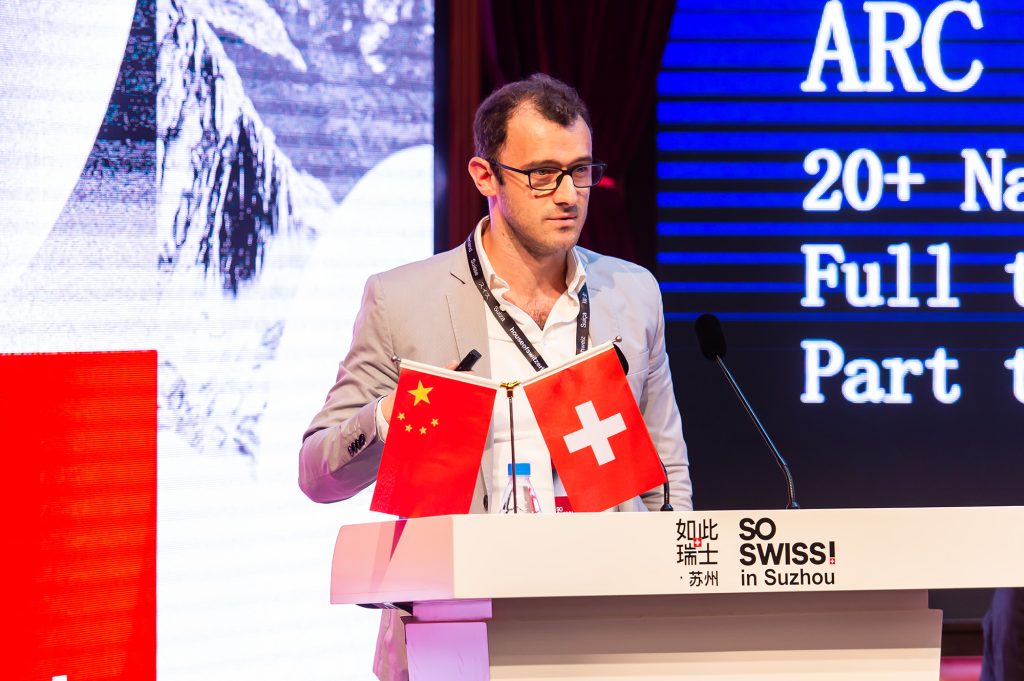
Dr Davide Lombardi
Sustainable healthcare and lifestyles
The event also features a panel on sustainable healthcare ecosystems and lifestyles.
Dr Jie Zhang, Associate Professor at XJTLU Wisdom Lake Academy of Pharmacy, moderated the panel discussion.
The panellists were Professor Mu Wang, Executive Dean of XJTLU Wisdom Lake Academy of Pharmacy; Professor Xiaodong Wang, President and Deputy Party Secretary of Children’s Hospital of Soochow University and Dean of Clinical Pediatrics School of Soochow University; Dr Bernhard Risse, Network Lead Core Lab Development, Roche Diagnostics Global; Dr Xiangdong Feng, Head of Technical R&D China at Novartis; and Dr Jianguang Wu, General Manager, Electro Medical Systems (Shanghai) Co. Ltd. and Board member of Electro Medical Systems (Hangzhou) Co. Ltd.
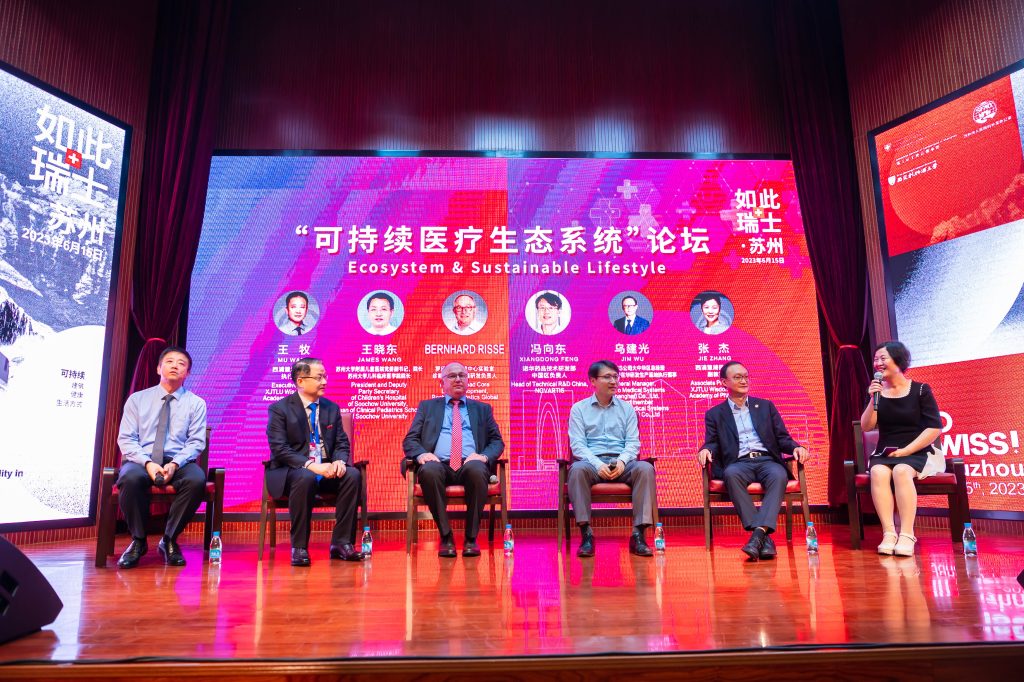
From left to right: Professor Mu Wang, Professor Xiaodong Wang, Dr Bernhard Risse, Dr Xiangdong Feng, Dr Jianguang Wu, Dr Jie Zhang
During the discussion, Professor Mu Wang emphasised the importance of education and basic research in sustainable development. He also mentioned that using AI and other advanced technologies to conduct innovative research and development has become essential.
Dr Risse pointed out that the need to innovate and collaborate is not limited to research and development but is also necessary for clinical medicine, the market environment and other aspects.
Professor Xiaodong Wang agreed that innovation is crucial in multiple aspects. He said big data is vital for a university’s advanced scientific research and more practical uses, such as hospital patients’ clinical data for resource allocation.
Dr Feng also discussed resource allocation from the perspective of scientists and chemists.
“As a member of an enterprise, we not only need to have a platform capable of enabling technologies, which can help us realise our ideas, but also need to have values consistent with our own, grow together with the enterprise, and take part in social responsibilities. Build trust with society and form a green environment for chemical management,” he said.
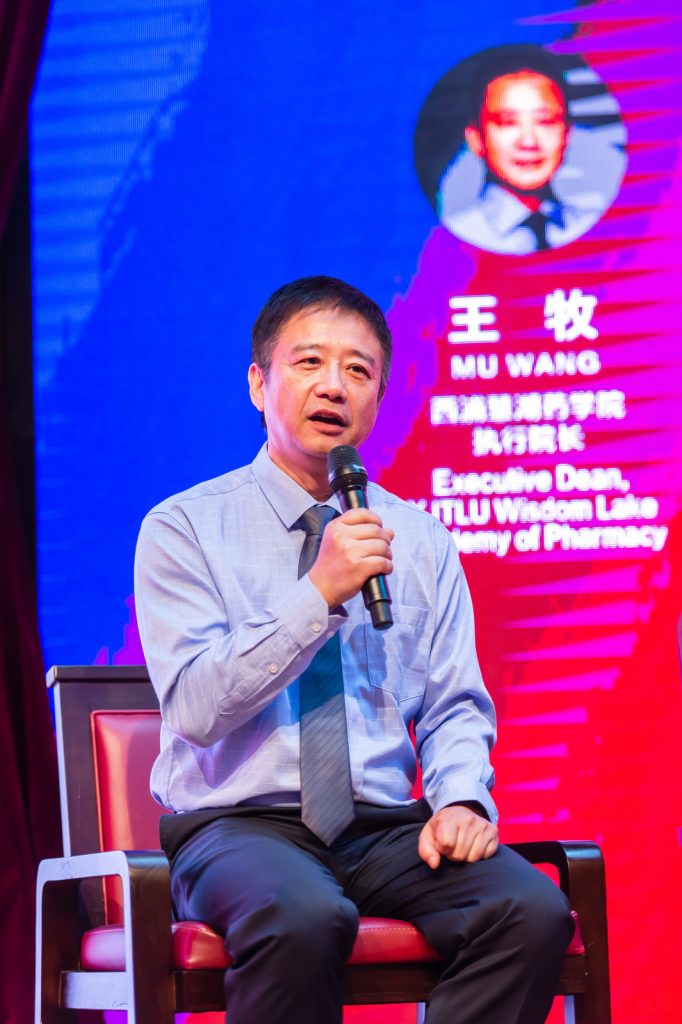
Professor Mu Wang
In the final summary, regarding the current challenges facing sustainable development, Professor Mu Wang and the other panellists agreed that to achieve sustainable innovation, the key lies in the cooperation between various parties and the priority of resource investment.
By Yi Qian and Zhuomei He
Edited by Patricia Pieterse
Photos courtesy of the Consulate General of Switzerland in Shanghai
06 Jul 2023

